As I have briefly mentioned in my last posting, wandering around the riverbanks of Bishnumati meant lots of exposure to agricultural farms that the Jyapu had painstakingly worked. There were cucumbers, squash (farsi), beans of all varietes, spinach, carrots and rato mula (red radish not the round variety but similar to Daikon). The last two were the ones, which we occasionally liked to give oursleves a hand to. The carrots were sweet and tender while the radishes had a kind of tangy flavor. Sometimes the farmer would yell at us, and try to chase off his field. My friends and I would run scared, sometimes with a speed of a motorcycle, pretending the aali (bund) on the farmer's field to be our super-highway and the wind beneath our wings to be the gasoline that powered our engines. I remember a day returning from school, sometime late in the afternoon, walking amidst a farmer's field near the Bishumati bridge in Balaju. I came upon a round, green squash right in front of me. The squash was still attached to the plant. I was attracted by its size and its rich dark green color, as if the squash was inviting me to reach out and carry it away from the field. Of course, I could not carry it home, which was 20 minutes walk away, quite a distance for a 12 year old, nor could I eat it raw. Something inside me told me that I should have it. In all honesty, reflecting back on that incident today, I can not tell you what prompted me to harvest it. I guess I did it because it was supposed to be the natural conclusion - a boy walking home merrily with a big, round shaped, squash on his hand. Little did I know that the owner of the produce was watching my actions, and was standing tight at the other end of the aali. When I saw him, I felt the rush of blood on my face and my heart pounding hard. My forehead and palms were sweating and I did not know where to run to, as the farmer was standing at the only exit out of the field. There was no turning back as that would mean I would be in the middle of his farm and perhpas surrounded by his family members. I was also ashamed that others would now notice that I had stolen something from the field, I looked around from the corner of my eyes to see if there were any witnesses. Luckily, there were none, so I decided that I would confront the farmer. He must have been in his 50s, his hair salt-n-peppered. He looked like a typical farmer in Kathmandu - he had a dhaka topi (Nepali cap) which he wore with abandon, his bhoto (like a coat woven out of local fabric) and suruwal (Nepali trouser) were somewhat dirty as he must have been working the fields. He stood there straight, his hands on his waist, and his eyes somewhat angry. I walked up to him defeated, and handed over the squash to him. He didn't say a word, held my left hand as he took the squash away from me. I thought I was going to be beaten up, but surprisingly he let me go, and not even without any warning. It was as if the squash was ready to be harvested and I had merely helped him do that.
The above incident has left an indelible mark on my memory for two reasons: one, I thought the Jyapu dai (brother) was very generous, he broke the stereotype of the farmers I had in my young mind; two: that was the time when the Chinese were building the Ring Road which today has become a very busy thoroughfare in Kathmandu. Iwas returning from my school, Siddhartha Vanasthali Madhyamik Vidyalaya, or in short, Vanasthali. The year was 1974.
So, you see, unlike today the land use around Kathmandu's Ring Road back then was primarily rural - mostly vegetable and paddy fields. There were many ornamental trees and orchards even in my neighborhood. Chief among the fruit trees in our neighborhood were pomegranate, plum, melon, and fig. We had a small vegetable garden that also had two plum trees, one pomegranate, and a fig tree. Every spring, the fruit trees delighted us with their splendid blooms; the trees were perfect for hide and seek games, and during summer filled our insatiable appetite for sweet and tangy plums. There were times when we would sneak into the neighbors' orchards, take as many plums as we could within minutes, and run away to find a secure place where we would eat the plums, chat and engage in braggadocio.
Thursday, June 25, 2009
Subscribe to:
Post Comments (Atom)
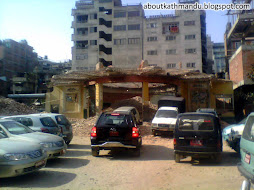





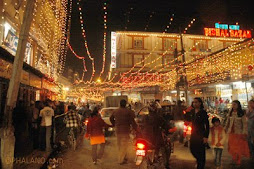

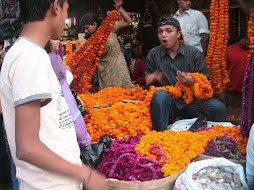
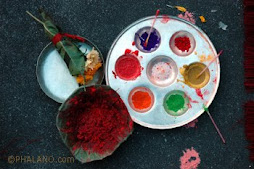




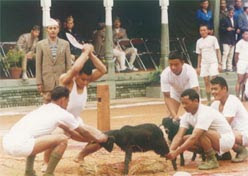




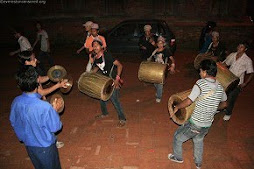
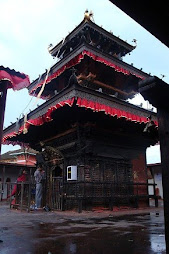

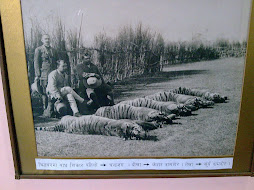




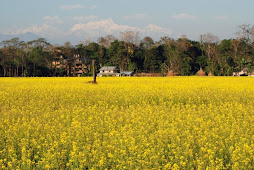



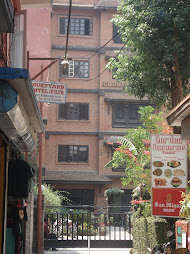



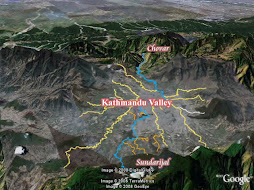





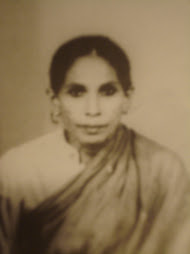

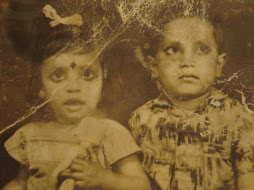
No comments:
Post a Comment